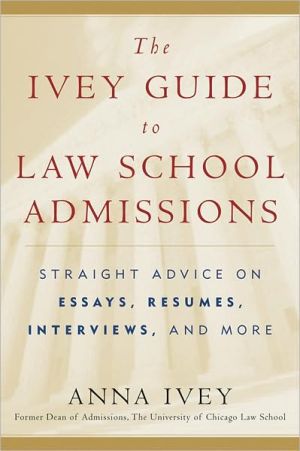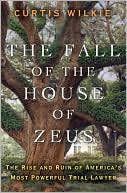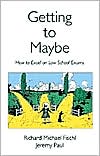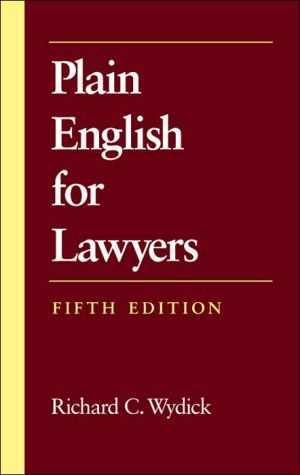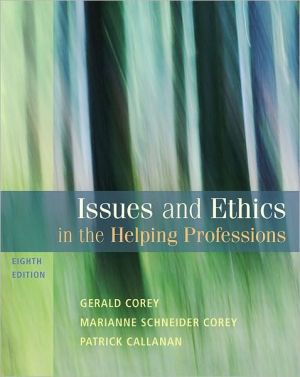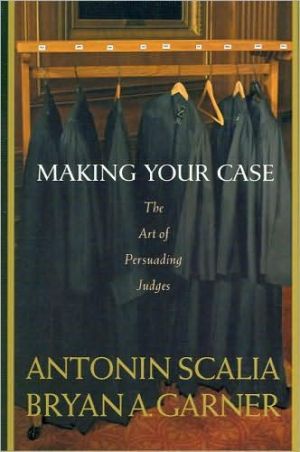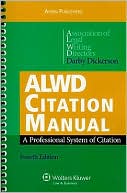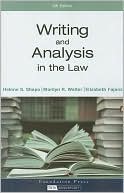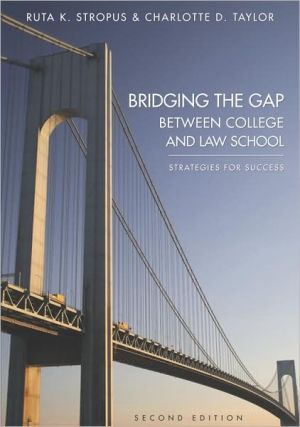The Ivey Guide to Law School Admissions: Straight Advice on Essays, Resumes, Interviews, and More
As dean of admissions at the University of Chicago Law School, Anna Ivey decided the fate of thousands of law school applicants. In this book-the first of its kind by a former law school admissions officer-she draws on her expertise to cover topics from the application and the essay to the interview and the recommendations, touching on hot-button issues like how much the LSAT, ethnicity, and age really matter. Offering an insider's advice on how to produce the very best application, this...
Search in google:
Ivey served as dean of admissions at the U. of Chicago Law School, and now runs Anna Ivey Admissions Counseling, a counseling firm for college, business school, and law school applicants. She draws on her experience to offer insider's advice on admission decisions from the application and essays, to the interview and recommendations. She also examines how much the LSAT, ethnicity, and age really matter, how to write an essay that stands out from the others, and whether law school is worth the cost? Stories about real admission decisions supplement the author's advice. Sample essays, resumes, and recommendations are provided. Annotation ©2004 Book News, Inc., Portland, OR
CHAPTER 1\ Straight Answers: Getting Inside the Head of an Admissions Officer\ All law school admissions officers face a dilemma. There are certain things they wish they could tell applicants because it would make their own lives so much easier, but they can't say, "In all honesty, we only spend about five minutes on each file, so you'd better cut to the chase," or, "Please, for the love of god, don't make me read another essay about endangered guppies." And they certainly can't say, "Don't bother applying with a 160 LSAT...unless you're a minority and then we'll throw in a scholarship."\ No one will risk getting fired or sued over that, not to mention the PR disaster that would ensue. So they grumble to themselves, prop open their eyelids with matchsticks, and keep reading thousands upon thousands of essays about endangered guppies, year in and year out. How do I know this? Because that was my daily life when I was dean of admissions at the University of Chicago Law School. I denied so many applicants while thinking, "If only they knew!"\ Picture this, a typical day for me as an admissions officer (and for just about every other admissions officer): I'm surrounded by hundreds of files stacked on every flat surface in my office. I have, on average, five minutes to read each one and make a decision on its fate. I've already worked my way through more than a thousand files this month, and I've read more than thirty today. I crack open the next one on top of the pile, a file belonging to a woman named Sarah. I scan her application form, her LSAT scores, and her college transcript in less than a minute and conclude that her GPA is just below our GPA median, and that her LSAT score is just above our LSAT median. As dean of admissions, I could easily write an "A" for accept or a "D" for deny at the top of Sarah's file based on this hard data alone, so the fate of her application depends entirely on the remaining four minutes I spend scanning the "soft stuff" of her application: her essay, her recommendations, her résumé, and her addendum. Four minutes, maybe less. That's it.\ Most applicants go horribly wrong here-not because the soft stuff of their files suggests that they can't handle law school or reveals them to be arrogant jerks (although that happens, too, from time to time). They go wrong because they have failed to persuade me that I should choose them over thousands of other applicants with acceptable numbers who I know could succeed at my law school. Sarah fails because she didn't wow me, and I'm sure she had no idea how to wow me.\ This book shows you how to wow an admissions officer. I've written this book to say all the things that I could never say when I was an admissions officer, even though I really wanted to. But I've also written this book because it's the kind of book I wish I'd had when I was applying to law school.\ I've been in your shoes. I remember how heady it felt to decide that I was going to apply to law school. With visions of Law & Order dancing in my head, I wanted to shoot for the top, for that all-purpose degree that would offer me the greatest career flexibility and the best financial safety net. I remember how mind-numbingly boring it was to complete those practice LSAT tests day in and day out for months at a time, until I couldn't even go out to dinner with friends without pondering who was going to sit in Seat #2 if Sam won't sit next to a redhead and Julie has to sit across from one of two vegetarians and Seat #4 has to remain empty. I remember that queasy, sleepless night before my LSAT, when I inspected the alarm clock every ten minutes while the hours slipped away. How paralyzed I felt by the range of topics when I sat down to tap out my life story in a two-page essay "on the subject of my choice" that would help the admissions committee "get to know me better." The anxiety of waiting for a response, wondering what was holding things up as I compared notes with other applicants. Law school invaded every single thought that passed through my head for a good nine months, and, despite my rational judgment, a more primordial part of me took over and let the law school admissions process consume my life.\ I remember well how daunting the application process was, especially the essays. Did they want me to write about law? I didn't know any yet! Did they want me to prove that I was a genius at logic and rhetoric? Was I supposed to entertain them with my wit and charm? Did they want me to prove that I was applying out of pure motives-for the public good!-and that I wasn't some moneygrubbing status hound? How was I supposed to know any of this, when I didn't even know what kind of people would be reading my file, or how they went about selecting their students? The process was a mystery to me.\ The essays were difficult, but at least I had some control over them. Faculty recommendations, on the other hand, felt completely beyond my control. I had no idea at the time what my professors really thought of me, or if some of them would even recognize me if they passed me on the street. I hadn't actively cultivated any relationships for recommendation purposes, because I hadn't appreciated until I sat down with my applications how important those relationships would be, and by then I was certain there wouldn't be enough time for meaningful schmoozing. I also didn't know the appropriate protocol or the etiquette. I didn't know whether it was kosher to draft the letters myself, as some recommenders had requested, and I didn't know how to deal with the professor who kept saying he'd get around to the letter as months went by and deadlines loomed.\ The numbers were the biggest mystery to me. Were admissions officers being honest when they insisted that it wasn't just a numbers game? Did my numbers make me a shoo-in? A shoo-out? Were there some schools I shouldn't even be bothering with? How reliable were those LSAT and GPA grids? Would it be a waste of time to continue with my extracurriculars if they were going to bring down my GPA? Should I be loading up on gut classes, or demonstrating my intellectual grit by taking harder classes with lower grade prospects? What classes and activities meant something, and which ones were considered fluff?\ It's amazing that I was so clueless, considering the fact that I had applied to and been admitted to plenty of fancy-pants schools by the time I sat down to apply to law school. I took my first standardized admissions test in sixth grade, in order to attend junior high at Boston Latin School; for high school, I attended Phillips Academy Andover, moved on to Columbia College, and spent my junior year at Cambridge University in the UK. Despite all that, the admissions process remained a black box, and off I went to the University of Chicago Law School without any clue as to why these schools had chosen me over my many friends and acquaintances who seemed to have just as much, if not more, to offer. For all I knew, admissions officers just threw darts at a board, and my luck had just been fantastically good. What I didn't know then is that even smart and accomplished people can make stupid (and common) mistakes on their applications. I was lucky in the sense that I avoided some traps without knowing in advance what they were. You shouldn't rely on luck. If you're reading this book, you're already miles ahead of where I was.\ Of course, some things have changed for applicants since I applied to law school back in the early 1990s. When we waited for our LSAT scores and our admissions decisions, we ran home every day to check our mailboxes-the bricks-and-mortar kind, not our e-mail in-boxes-several times a day. Good exercise, that. But the biggest difference has to be the way the Internet has changed the application experience. When I was applying, there were no discussion boards where applicants trade admissions war stories and statistics, share intelligence, critique each other's strategies, waste time ("My List of the Ten Sexiest Ugly Women on TV!"), and disseminate more rumors and misinformation than Dan Rather on election night. It's way too much for any one person to process, and it's hard to gauge what information is reliable. Applicants may feel empowered by all the opinions and statements of fact floating around out there, but applicants are just as neurotic and misinformed now as when I was applying; some would say more so.\ What hasn't changed is the black-box aspect of law school admissions. Law school admissions officers can't and don't speak candidly about affirmative action, for example, or what kinds of essays make them want to shoot themselves in the head from boredom. (And I don't blame them for that in either case. I've been there.) Law school students, while helpful resources in other ways, generally know nothing about law school admissions except that they got in. And applicants are even less informed, no matter how easy it is these days to find them and compare notes.\ I wrote this book to offer applicants straightforward, practical tips from an insider's perspective. I've read thousands of files, conducted hundreds of admissions interviews, and traveled across the country to meet with and counsel hundreds of thousands of prospective applicants at law school forums and pre-law society fairs. More than that, I made the tough choices, the final choices, about who got in and who didn't. The Ivey Guide to Law School Admissions offers you the benefit of that experience. It tells you the truth without sugarcoating, without the law school PR. My admissions counseling clients have the benefit of my one-on-one advice; this book is the next best alternative.\ In The Ivey Guide to Law School Admissions, applicants will find answers to questions like these:\ o I have an LSAT score of 164. Will that get me into Columbia, my dream school? Is it even worth paying the $70 to apply?\ o What kinds of essays do they like? Do they want to hear about my work fighting poverty? My backpacking trip through Europe? My parents' divorce? My marathon training? My analysis of The Simpsons as a reflection of the American zeitgeist?\ o How do race and sex really affect my admissions chances?\ o Should I write a letter explaining my unrepresentative LSAT score, my D in Organic Chemistry, my attention deficit disorder, my stint in rehab? Or will that make me sound whiny?\ o Should I submit my poetry, my photography portfolio, my master's thesis, my karaoke tape?\ o Am I at a disadvantage as a forty-year-old stay-at-home mom who's applying to law school now that my kids are off to college? Will law schools take me seriously?\ o Can I use the same résumé that I use for job purposes?\ o For my recommendation, should I necessarily pick the English professor who says she'll write me "a great letter"?\ o Do I look bad if I cancel my LSAT score and retake it?\ Filled with easy-to-follow dos and don'ts, this book shows you how to produce the very best law school applications. You'll find that the advice in this book is geared toward normal people-people who haven't necessarily founded and sold their technology start-ups to Fortune 500 companies for billions of dollars, played pro football, emigrated to this country after surviving the pillaging of their sub-Saharan villages, grown up the children of radical fugitives, or served as test-case plaintiffs in the most pressing constitutional cases of our time. Those folks don't need much help making their applications stand out from the pack or finding dramatic and thrilling essay topics. (But beware: Those people do apply to law school, and they are among your competitors.) Instead, I wrote this book for the vast majority of applicants, the mere mortals who have distinguished themselves on a less dramatic scale and want practical advice on how to present their accomplishments and goals in the best possible and most interesting light.\ Ideally you'll start reading this book early in your college career, because some of the strategies I suggest for improving your prospects as an applicant can't be executed overnight. However, there's also more than plenty here for people who are cracking open this book just as they sit down to start work on their applications and need quick answers, as well as for older applicants who are considering a career change and want to get a bird's-eye view of the application process before deciding whether to invest their evenings and weekends in that pursuit.\ I also hope that parents of prospective law school applicants read this book. Some parents do their children a real disservice by failing to educate themselves about the current state of the legal profession and the things admissions officers really care about when they're putting together an incoming class. If you have strong opinions about the benefits of a law degree, for example, or of the necessity for going to law school straight out of college, read on...and please keep an open mind. I know you want what's best for your son or daughter, but ask yourself what you really know about law school, or the legal profession, or the law school admissions process today-not twenty or thirty or forty years ago-before you exert your influence one way or another.\ I hope this book helps demystify the law school admissions process. If you have suggestions for future editions, please send your comments to comments@iveyguide.com.\ Copyright © 2005 by Anna Ivey\ All rights reserved. No part of this publication may be reproduced or transmitted in any form or by any means, electronic or mechanical, including photocopy, recording, or any information storage and retrieval system, without permission in writing from the publisher.\ Requests for permission to make copies of any part of the work should be mailed to the following address: Permissions Department, Harcourt, Inc., 6277 Sea Harbor Drive, Orlando, Florida 32887-6777.
Straight Answers: Getting Inside the Head of an Admissions OfficerThe Wow Factor: What Admissions Officers Really Look ForBring Tears - of Joy! - to Their Eyes: The EssayDamning With Faint Praise: RecommendationsYour Life in One Page: The Résumé"Please Let Me Explain": The AddendumThe Thirty-Minute Audition: The InterviewAppendix:How to Pick a Law School: Portability, Pricetags, and Public ServiceFinancial AidBrainstorm QuestionnaireEssaysRecommendationsAddendaResumes
